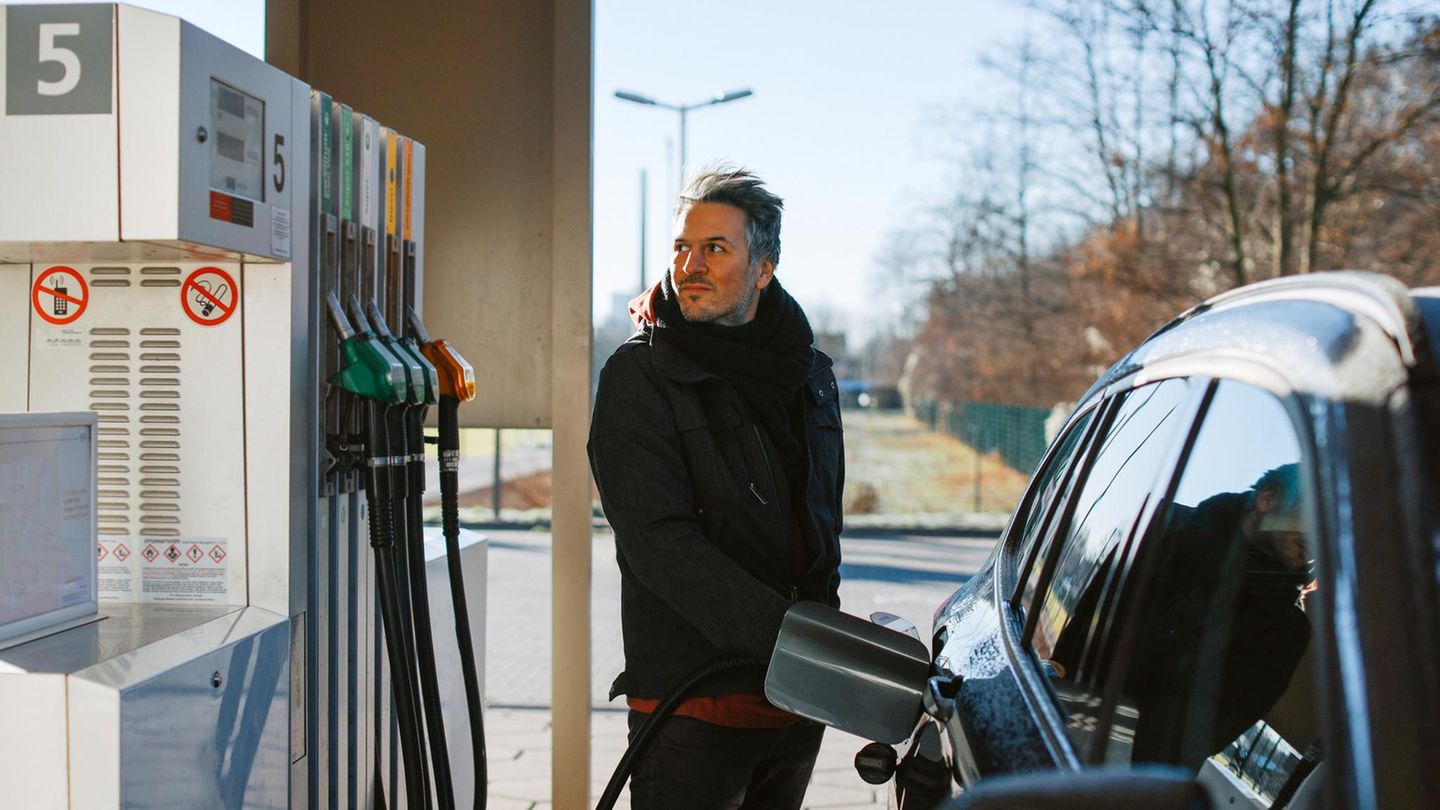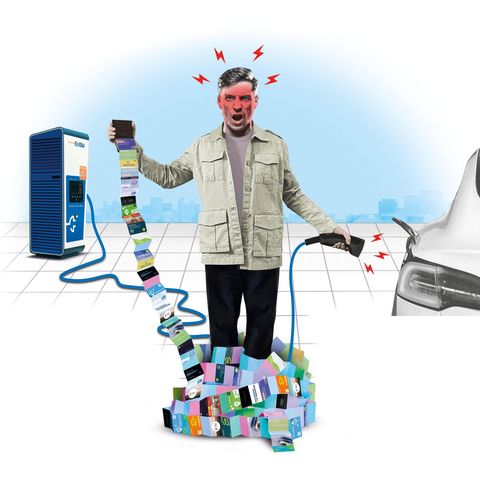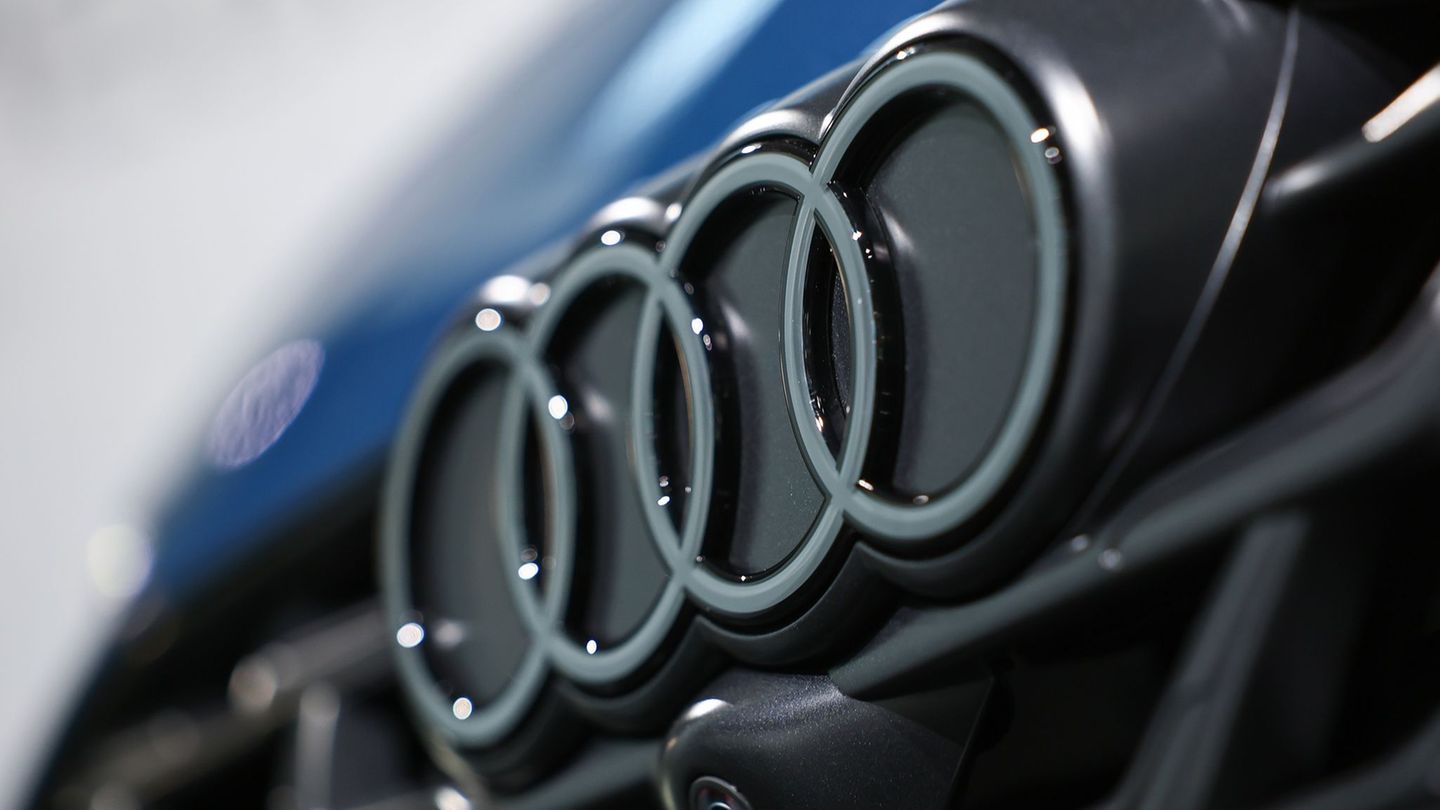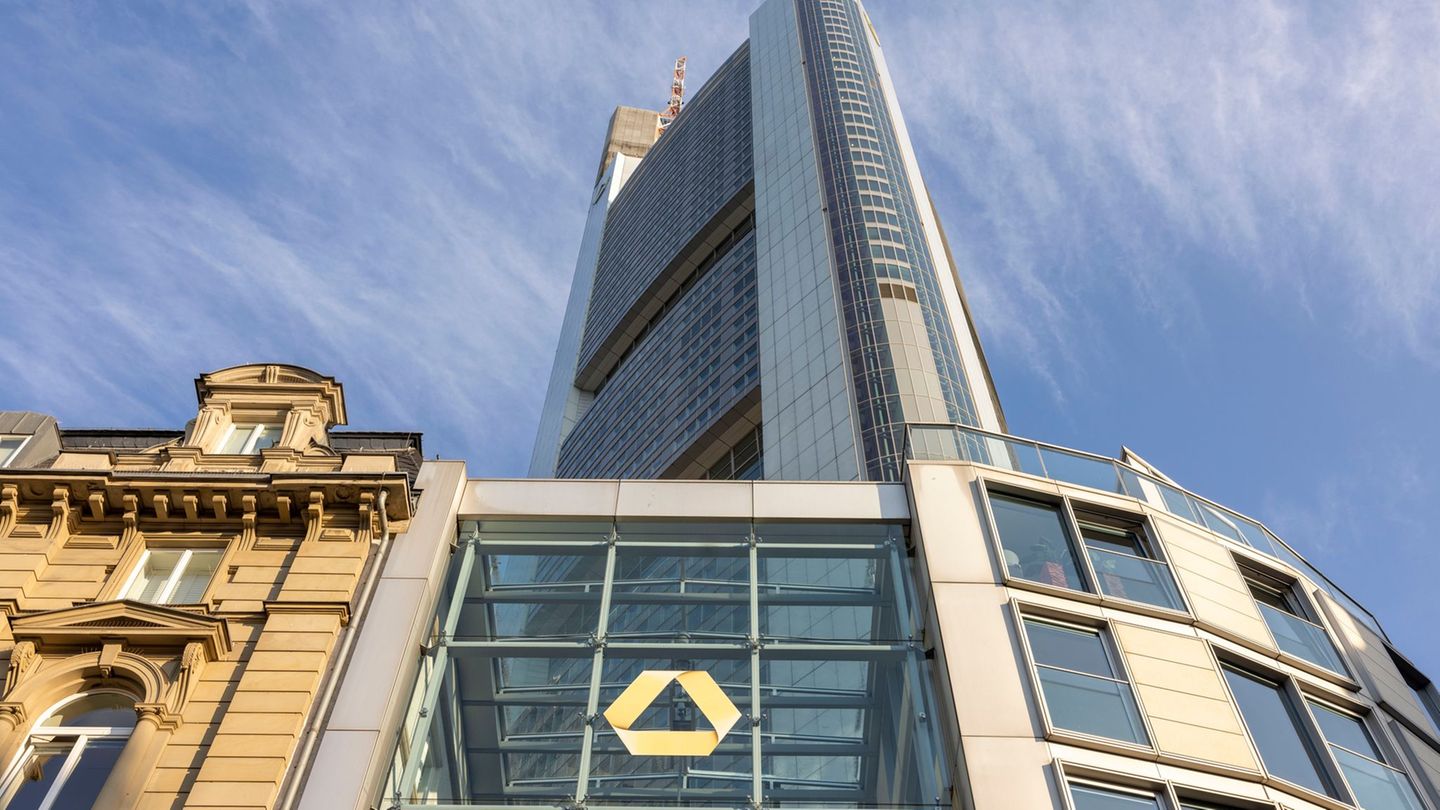Falling oil prices
Petrol is much more expensive than necessary
Copy the current link
Add to the memorial list
The gasoline prices do not go down as quickly as you should expect after falling oil prices. The petrol stations are not to blame – there is still doubts about the competition.
Crude oil has become significantly cheaper in recent weeks. The customs dispute with the USA in particular took care of this. But while the price increase in mid-January was quickly felt at the petrol station, the drop afterwards and, above all, the slump after Trump’s customs excesses did not really arrive at the petrol pump in early April.
The price of gasoline should actually follow the development of the crude oil price. The fact that this is currently noticeable is not due to the petrol stations, but because of the refineries: As the cartel office determined, the wholesale price for super gasoline has decoupled from the crude oil price (see graphic below): In mid -January there were still 21 cents per liter between the two prices, in February 25 and in the middle of April it was even 28 cents. If the prices had changed in step as usual, the gasoline price in mid -April would have been around seven cents cheaper. If you take VAT into account, even more than eight cents.
Distance between refinery prices and crude oil price
Not only the crude oil price determines the gasoline price
Now the crude oil price is not the only factor. Fluctuations in demand, for example through stronger construction activity in spring, the delivery costs or changes in the offer affect the price. In mid -March, Shell stopped petrol production in the Wesseling refinery. According to the market data provider Argus, which delivers price data for the oil market, Shell’s step leads to more imports from abroad, which has increased prices. The currently low water level of the Rhine also makes transport more expensive.
This can certainly explain part of the price development. After a great investigation, the cartel office has doubts that the competition among the refineries works really well. To do this, you have to know that the refineries are partly operated by the same companies, which also include the petrol stations. In Germany there are still eleven refineries that process crude oil: Shell, BP, Total Energy, Eni, Esso stick to large parts, sometimes operate completely own works, but some with several partners.
Doubts about the competition among the oil corporations
The interests are too similar, the company of the cartel office revealed through joint participations in refineries. The market is also very transparent and the products are largely identical. The favored that the oil companies set their prices uniformly instead of going into a real competition. There are indications that the wholesaler of fuels could be significantly disturbed, the cartel office said when the examination was presented in February. Therefore, the office now wants to examine the market more closely and also consider steps to revitalize the competition.
Lots of space for the whole family: the best combination

The Audi A6 Avant is brand new on the market; As a business combination, he is just as popular as in the role of a family model. Even if the cargo space was significantly smaller compared to the successful predecessor generation due to the falling rear, more than 500 liters should still be enough to start perfectly in weekends and vacation. For large objects, the back seat of the 4.99 meter long family combination can be flipped in a ratio of 40:20:40. Starting price: 58,000 euros
© Press Inform
More
Open the image subtitle
Back
Further
The double role of the oil companies as operators of refineries with their own petrol stations is also difficult. As a result, there is “no effective demand for demand that would effectively restrict the behavioral scope of the providers to refinery and wholesale levels”, as the cartel office formulates.
In addition, there is the “Rocket Feather effect”, as economists call a widespread phenomenon in many industries: companies like to continue to increase their customers immediately to their customers, but take the time when sinking prices. So the prices rise like rockets – and fall like feathers.
Source: Stern





